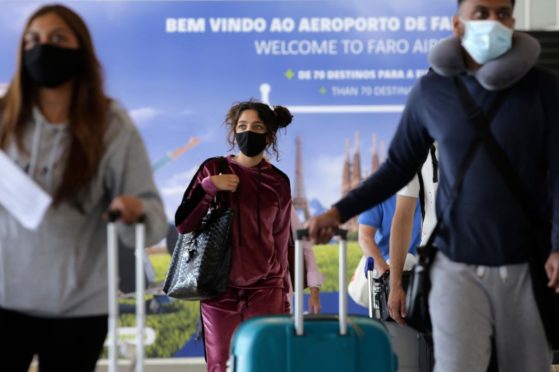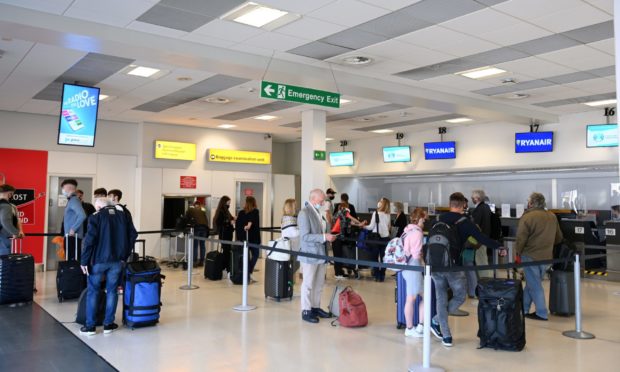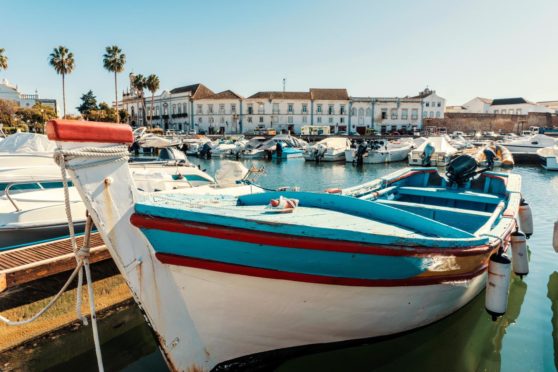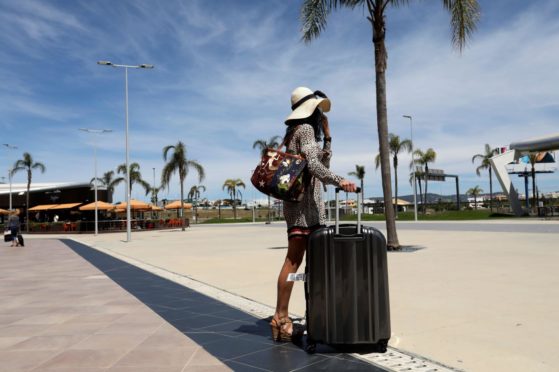Bosses at Aberdeen International Airport have warned it will soon be “impossible to operate” if the rules around travel keep changing.
Portugal will be removed from the green travel list from Tuesday and moved to amber.
It comes following a meeting with the Westminster and devolved governments and the Joint Biosecurity Centre amid concern about about the growing number of cases of the Delta variant.
People returning to the UK from amber list countries must self-isolate at home for 10 days.
Aberdeen International Airport waved off its first group of passengers destined for Faro on Tuesday, with many holiday-makers speaking of their relief at finally getting away from it all.
But now they will have to worry about the practicalities of returning home – which airport chiefs believe will just prevent people from travelling.
Continued uncertainty will damage passenger confidence
A spokesman for AGS Airports Ltd, which runs Aberdeen, Glasgow and Southampton airports, said: “Within two weeks of the safe restart commencing Portugal is now an amber-list country and many of the passengers who have flown there or have made plans to, will now have to quarantine at home for 10 days on top of the expensive testing costs required to travel.
“The continued uncertainty associated with international travel will not only seriously damage passenger confidence, which is already extremely fragile, it will also put the aviation industry and the hundreds of thousands of jobs associated with it at real risk.
“People will simply choose not to fly due to the continued uncertainty involved and airlines will find it impossible to operate in such unpredictable conditions.”
Many holidaymakers in Portugal face a scramble for flights home before the move is introduced on June 8.
The decision on Portugal is a huge blow for the travel industry, as the country was the only viable major tourist destination on the green list.
Joanne Dooey, president of The Scottish Passenger Agents’ Association (SPAA), the professional body for travel agents and the travel sector in Scotland, described it as being like the “hokey cokey”.
She said: “We described the situation of ‘travel corridors’ last year as the hokey cokey as we didn’t know from one week to the next which countries would be in or out. This year with the introduction of the traffic lights, all we have is a more colourful version of the hokey cokey – which is after all a comical and ridiculous child’s game.
Decision will hit whole tourism industry
“It’s a fallacy to say that there is a green list for Scotland as with the removal of Portugal, which was effectively the only country we could fly to from Scotland, we’ve added another colour – as Scotland seems black-listed.
“This isn’t just about those holidaying in the Algarve who travel agents will have to work, for no income, to repatriate or those who will have to self-isolate for 10 days and take expensive tests; it’s about the systematic dismantling of Scotland’s travel sector.”
It is only 17 days since the ban on non-essential leisure travel from Britain was lifted, but since the traffic light system was introduced there has been almost a doubling in positive cases in Portugal.
This is the first review of international travel restrictions since the traffic light system was introduced on 17 May. It is subject to review every three weeks.
Government urges people to rethink holiday plans
Transport Secretary Michael Matheson said: “Portugal is a popular destination for Scottish holiday makers and this change will clearly cause disruption to people’s travel plans.
“However we have been forthright from the outset that the traffic light system is designed to protect the safety of the people of Scotland and the continued progress we are making as we come out of lockdown.
“Using the stringent methodology of the Joint Biosecurity Centre it is clear the risk this new variant poses is now too great to allow unrestricted travel to Portugal, an approach that has been agreed by all four nations.
“International travel for holidaying purposes remains risky and subject to sudden change. We have said before people should think very carefully about travelling – and this latest development serves to underpin that advice – especially so given the prevalence and unpredictable nature of variants of concern.”
He was echoed by UK Transport Secretary Grant Shapps, who said the public has “always known travel will be different this year” and that a cautious approach is necessary.
Meanwhile seven countries – including Sri Lanka and Egypt – have also been added to the red list.
That means people arriving in the UK from those nations will be required to stay in a quarantine hotel for 11 nights.



